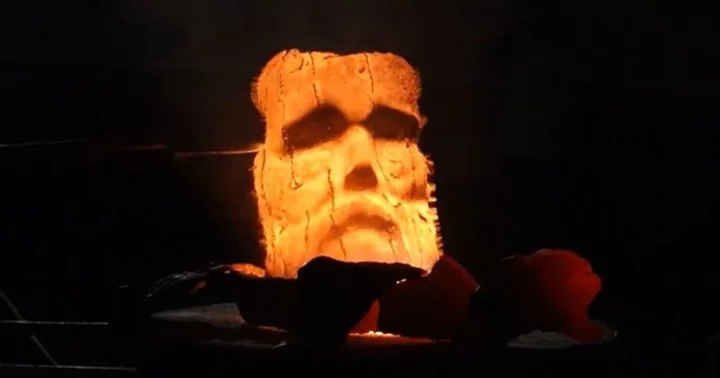CHARLOTTESVILLE, VIRGINIA: In recent years, Confederate monuments have been removed from public areas across the American South. While some have been placed in museums, others are kept in storage.
But the black history museum in Charlottesville has secretly destroyed the statue of General Robert E Lee that served as the impetus for the Unite the Right rally.
Standing in a downtown park in Charlottesville for almost a century was a large bronze sculpture of Confederate General Robert E Lee in uniform on his horse named Traveller.
In July 2021, the statue of General Lee, a renowned slave owner and esteemed leader of the Confederate Army, was taken down from its pedestal in Charlottesville, Virginia.
Why Charlottesville's Robert E Lee monument is being melted down?
In response to Black Lives Matter demonstrations following George Floyd's death and the historic Unite the Right rally in 2017, the city council decided to have it taken down.
The Confederate general statue that originally stood in Charlottesville, Virginia, has now been covertly melted down within a Southern foundry, having been removed more than two years ago.
According to The Washington Post, out of fear of retaliation, the statue was broken into pieces and then burned away in a furnace hidden away.
More recently, supporters of the statue tried to stop the city from giving Lee to the Black History Museum in Charlottesville, as the museum had suggested using the metal for another purpose.
With the controversial Unite the Right demonstration gathering at the statue, white supremacist organizations have battled to keep the memorial in place.
Opponents assert that the Confederate generals' statues were not built as memorials but rather as a tool of intimidation against African Americans and the elevation of white supremacy.
Supporters counter that efforts to remove Confederate monuments are an attempt to obliterate historical memory, per Daily Mail.
The Black History Museum in Charlottesville received the statue and had it destroyed by melting it down, per the Washington Post.
The statue's head is scored in the shape of a death mask using a torch, and Lee's face hits the ground with a loud clank.
The museum's executive director, Andrea Douglas, told the outlet, "Well, they can't put Humpty Dumpty back together again."
While some Confederate monuments have been demolished across the nation, the majority have been stored or built on sites associated with the Civil War that honor the Lost Cause.
A handful have been on display in museums, where historians may provide the background information.
However, there is a chance that this is the first Confederate monument to be melted, and the meaning of the picture varied among those who saw it on Saturday, October 21.
Lee's statue was sliced into nine parts. Museum officials would not specify where or when this occurred, although it happened after the statue was given to the museum by the city but before it was sent to the foundry.
The general's head was taken off of both his body and Traveller, his horse, but it still needed to be disassembled in order to fit into this little furnace.
Three foundry workers sliced seven deep gashes into Lee's severed head, illuminating the scene with bluish-white light and orange sparks.
Internet calls the melting head of General Lee 'demonic'
Following the release of the General Lee monument's melting head images, Internet users expressed their uneasiness on social media platform X (formerly Twitter).
One X user called it "demonic" and said, "This seems demonic idk."
Another user mocked, "This would go hard as a profile pic"
One user said, "Statues are to immortalize, not remember. Robert E Lee is in many history books. He unfortunately was on the wrong side of history, fighting for the side who’s purpose was to preserve slavery. He should not be immortalized due to this reason. Glad the statue is gone"
"Statues may rise and fall, but this picture will now live on the internet forever," added another X user.
One more user said, "The ghosts of Robert E Lee: Charlottesville’s statue has met its end, in a 2,250-degree furnace."









